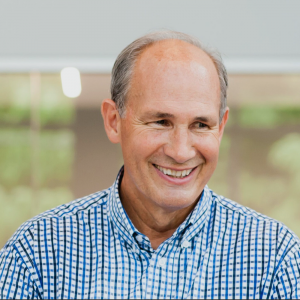Meaningful Business (MB:) Please tell us a bit about your background.
Ashley Rookwood (AR): I’m a young black man from South London who grew up on a council estate with my family. Gangs were prevalent and membership was tempting. At the age of 12, with an underdeveloped capacity to make wise decisions and nonexistent role models, I regrettably succumbed to peer pressure. During this chapter of my life I lived purposelessly in survival mode. Subsequently, I was incarcerated for joint enterprise for 12 years. I perceived my sentence as an opportunity to transform myself.
Whilst in prison I embarked on an academic journey with Open University and earned a 1st class degree in Business Management with Economics. I then progressed to do a MSc with City, University of London with a Longford Scholarship to study Behavioural Economics. I have done ambassadorial work for Longford Trust which includes consulting on their recruitment process for people with criminal records.
Upon release, I joined a startup which was using technology to make employment accessible for diverse talent, including people with criminal records. Subsequently, I interned with Eurasia Group, a global consultancy firm. I experienced the global energy and natural resources sector and produced an analysis report for the UN Attorney General.
I am now building a social enterprise to create employment opportunities for people with criminal records globally.
MB: What was your experience like when trying to find employment upon your release from prison?
AR: I was released from prison with the dream of living a fulfilling life, irrespective of my life experiences and ethnic background.
I applied for a few jobs in the private sector and was entertained over a few obligatory lunches with decision makers. Despite my strong CV and the diversity of opinion someone like me with different life experiences could contribute towards ideation and innovation, I was rebuffed and more hurdles were put in front of me. I was told, “you need a MBA”; “you need more experience”; “your first class degree is too generalist.”
This feedback was a reality check, and the realisation that the labour market was unfavourable to people like me was sobering. These encounters highlighted existing injustices and inequalities in our society. I applied for a cleaning job to earn some pocket money, but knew that I had the capacity and potential for more meaningful employment. Later this was confirmed by the interviewer who said “with your presentation and qualifications, why would you apply for a cleaning job.”
A few days later, I received a phone call from someone who I had connected with simply as an acquaintance, and was offered an opportunity with a tech startup which was supporting diverse talent by making employment opportunities more accessible.
MB: What are the main challenges facing formerly incarcerated people when trying to find work?
AR:
1. Poor prison education
Finding employment begins by building human capital during their prison time, in a secure environment. Access to a meaningful and stimulating education throughout a prison sentence should be a human right and enshrined accordingly. It is widely accepted that lifelong learning is a non-negotiable requirement to survive and thrive in today’s economy. If so, it is an injustice for those contained in prisons to be deprived of opportunities to learn. Education is the key to unlocking the potential in people languishing in prison, by providing mental stimulation and oxygen for dreams and solutions to the world’s most intractable problems. This could be supplemented by corporations providing meaningful vocational training and mentorship within prison establishments.
2. An absence of meaningful employment
My definition of meaningful employment is work which enables a person to make a contribution to the world. For example, harnessing the entrepreneurial instinct most people who commit crime possess and channelling it into the achievement of the UN Sustainable Development Goals. There is a community overflowing with work ethic, creativity and ideas. Too often these people are limited to soul destroying menial work which is not commensurate with their gifts, potential or personal commitments (family etc.). Consequently, employment quickly becomes nightmarish, vitality is evaporated and dreams are extinguished.
3. Insufficient apprenticeships
Many of these people are without competitive qualifications and work experience, making it unimaginably difficult for them to qualify at an entry level into the type of employment to match their skillset. An apprenticeship would provide these people with the fertile environment to cultivate soft skills, and hone them. Within this community, there is a huge talent pool of people who, with understanding and support, can become someone beyond the stereotypes and biases, which have reduced these humans to ‘offenders’.
4. Lack of holistic mentoring
It is well documented that effective mentorship can accelerate learning processes. Prisoners often lack mentors to provide guidance and support with the many dimensions of their life. Having an open-minded mentor to nurture and share an authentic relationship is imperative. A mentor would provide the following benefits: support with adjusting to employment; an opportunity for observation and learning; and a constructive feedback loop coated in wisdom.
MB: Where did the idea come from for New Creations Capital?
AR: The idea was born from growing up in London surrounded by people who looked like me, with bags of entrepreneurial energy but few outlets for its constructive use. I encountered more people throughout my time in a secure environment who also possessed an inherent entrepreneurial instinct to solve complex problems with exceptionally creative solutions. For example, utilising their creative prowess to negotiate, adapt and survive the harsh and non-rehabilitative environment.
I have a solution-oriented predisposition, which was quickly recognised by a tech startup business, which provided me with an opportunity to learn about digital technology and experience the practical aspect of a startup. During this time, I met several charities working with people in the criminal justice system who expressed their frustrations about the discrimination their trainees frequently experience. I floated the idea of entrepreneurship for entrepreneurs (people with criminal records in secure environments). It received an immense amount of positive feedback and validated my personal assumptions about the idea’s potential.
MB: What is your vision for the company?
AR: To humanise and empower people with criminal records throughout the world by making meaningful employment opportunities accessible.
MB: What is the attitude of prisons in fostering the entrepreneurial spirit of some of their inmates?
AR: Generally speaking, these men are perceived through the prism of their past which distorts the realities of their potential. Currently, the criminal justice system is imbalanced and punishes twice. Firstly, through sentence, and secondly by providing limited opportunities to rehabilitate. This only perpetuates the revolving door of reoffending.
There is robust empirical evidence that substantiates our theory about the capacity of this community to become extraordinary entrepreneurs with the right infrastructure.
MB: What is your advice to businesses considering playing more of an active role in criminal justice reform?
AR: I would say please do – if you are really interested in social impact. Let us reimagine a world in which meaningful employment is accessible to everyone.
The national reoffending rate has been around 50% for far too long now. There are too many people returning to prison, and disproportionately more from BAME communities. For example, the black community constitutes 3% of the population in England and Wales and 12% of the prison population. In the US, they account for 13% and 35% respectively. This humanitarian crisis has been overlooked and rationalised for decades. Let this be a call to action.
A solution requires action and the investment of companies’ resources, into:
1. Factoring people with criminal records into your CSR policy
2. Investing resources into meaningful prison education and training
3. Offering internships tailored to the needs of this community
4. Employing someone with experience of the criminal justice system to support your impact in this community
END.
Register here to join us as we bring together justice-engaged business leaders and individuals who have been directly affected by the criminal justice system for a digital event on the 29th September 2020.





